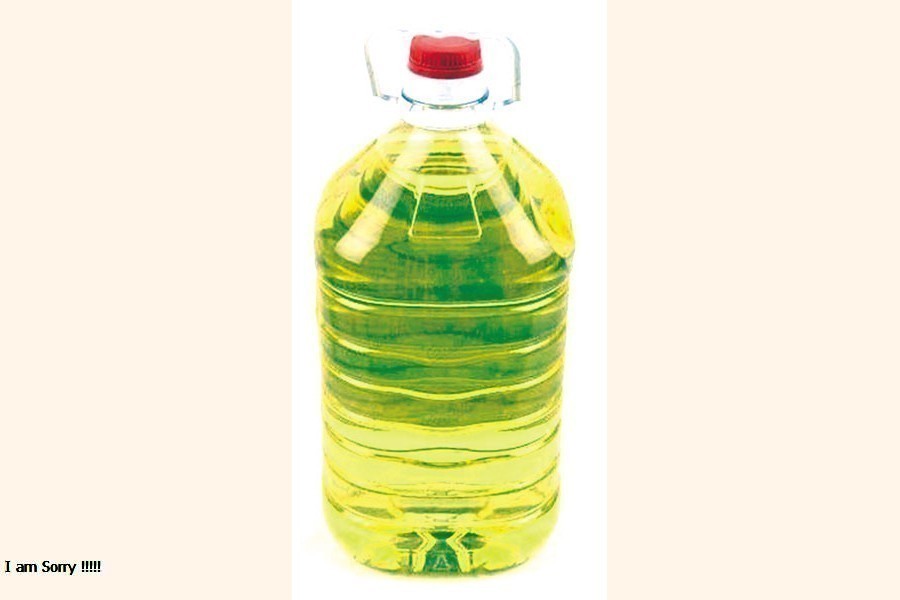The government move to implement marketing of both palm and soybean oil in bottles by March next can lead to volatility in the market, edible oil refiners feared.
To avoid the possible and unexpected volatility, Bangladesh Vegetable Oil Refiners and Vanaspati Manufacturers Association requested the commerce ministry to extend its deadline by nine more months until December this year.
Earlier, the government set a target to implement marketing of edible oils in packaged form by March 2022 on the domestic market.
However, industry insiders said, international machinery supplier firms could not supply required machinery for bottling the edible oils due to the Covid-19 pandemic.
As a result, members of the Association could not comply with the government decision of cent per cent bottling of edible oils, they added.
Under the circumstances, the oil refiners have requested the commerce ministry to extend the timeframe of marketing of soybean oil in bottle form until December next.
There might be a lack of storage capacity for accommodating a huge amount of packaging materials, feared the Association.
Therefore, it is very important to have a proper direction in this regard, or else the whole process will leave a negative impact on the local market, said the oil refiners.
Since soybean is being widely used in cooking, the refiners want to implement marketing of soybean oil in bottle or packaged form in the first place. And the marketing of imported palm oil in bottle form will come next, said the Association.
Additional secretary of the Industries Ministry said, "We have formed a committee in a bid to stop sales of loose edible oil in the country after March 2022 next."
Palm oil is currently sold in an unpacked format while soybean oil in both packed and unpacked forms.
Currently, around 75 per cent of imported edible oil is sold in unpacked or loose format while only 40-45 per cent soybean and 2-3 per cent palm oil in PET bottle or poly format.
Earlier, in 2021, the industries ministry sought the commerce ministry's opinion regarding a proposed provision that no more soybean oil would be sold in an unpacked format.
As soybean oil will be sold in plastic packs and PET bottles only, it can be easily differentiated from palm oil.
It will be sold under a brand name and will have a mandatory certificate from the Bangladesh Standards and Testing Institution.
PET stands for polyethylene terephthalate and is usually used for manufacturing plastic bottles for liquid or beverage consumption.
A senior commerce ministry official said introduction of all-packed or PET bottled soybean oil would involve a price hike of the item to some extent at the consumer level.
To this end, the industries ministry formed a high-powered inter-ministerial committee.
The 11-member panel will closely monitor the drum management of the country's refiners and others concerned across the country.
In September 2021, the commerce ministry through a letter to the industries ministry sought necessary measures to stop selling unpacked soybean oil in the market in order to save consumers from being cheated and also protect their interests.
The commerce ministry has been monitoring the edible oil market regularly; it finds some problems in selling unpacked soybean oil by analysing the monitoring reports of the officials concerned, read the letter.
Currently, palm oil is cheaper than soybean oil; so, there is a risk that palm oil be added to soybean oil, it continued.
There is also a tendency to sell unpacked oil by kilogram - not by litre. For this, added the letter, consumers are getting deprived in different ways. According to the commerce ministry, general consumers are reaping benefits of packed soybean sales in the market.
When asked, an official said, "Some dishonest traders are selling other edibles in the name of soybean oil. We've made the move to ensure genuine oil consumption."
The country's annual edible oil import is an estimated 2.2-million tonnes - 70 per cent palm oil and 30 per cent soybean oil, according to the Bangladesh Bank data. However, a Bangladesh Trade and Tariff Commission analysis finds that soybean oil sells more in the market than its total import.


